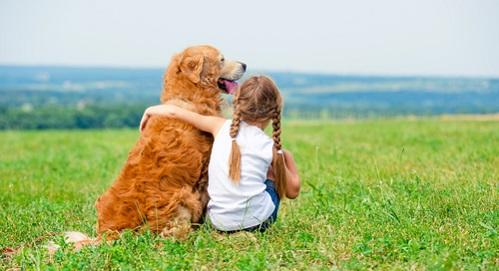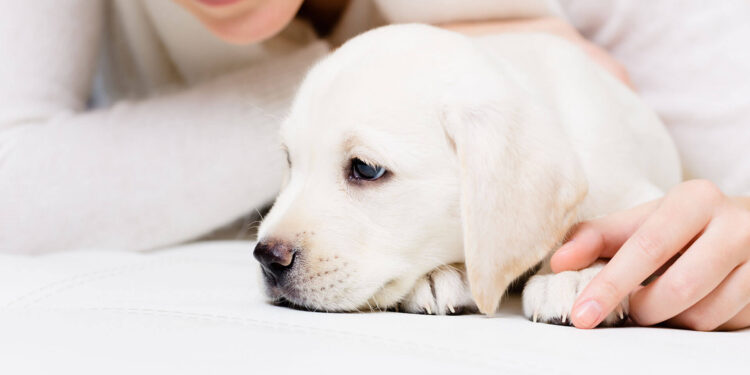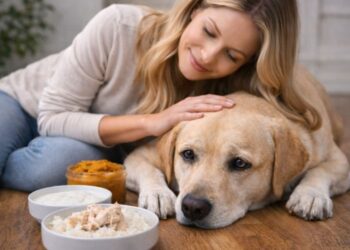Yes, just like humans, canines can also experience anxiety, especially puppies who join your family as new members. Excessive drooling, unusual aggression or barking are some signs you might take as normal dog behavior, but these can be the symptom that your puppy has anxiety. If untreated, their nervousness may turn into an anxiety disorder resulting in problems you’ll not want your puppy to experience.
We all know well how stress makes humans feel, so it goes without saying that we also want to help our puppy experience less stress. Don’t worry! Your puppy’s anxiety can be managed. You can help your pooch live a better life while controlling stress.
What Does Anxiety Look Like In Dogs?
As a dog owner, you’re the expert on your puppy, and you may already notice what caused your puppy to experience stress and anxiety. Sometimes the source of your puppy’s anxiety is evident, and by closely observing their body language, you may figure out what’s setting off their strange behavior.
Usually, a change in their routine, surroundings or activity triggers their stress; fear and separation are the most frequent reasons for canine anxiety, especially when they are small babies.
More than 70% of canines exhibit anxiety-related behaviors.
For example, the two most common symptoms of stress and anxiety in dogs are tucked tail and avoiding eye contact.
Other symptoms that your puppy experiences anxiety are pacing, alertness, urinating inside the house, drooling, panting, excessive barking, hiding, escaping, and changes in sleep patterns. Does your puppy experience these symptoms? If yes, you must also understand the causes of stress in your canine.
Causes of Puppy Anxiety
The most frequent causes of anxiety in puppies include abandonment, fear of being left at home alone, loud noises, travel, or being around unusual people, kids, or animals. For example, your puppy might have been exposed to a strange environment, situation or people.
Their stress and anxiety can show up in various ways, from whining and constant barking to trembling and whimpering, and it might even cause them to become unfriendly or violent. So, let’s start with how to ease your puppy experience.
How to Calm Your Puppy’s Anxiety?
Some canines occasionally struggle with anxiety, while others suffer from constant stress. Consult a veterinarian for assistance if your dog exhibits persistent anxiety and you are unsure of the immediate cause or have difficulty calming them down. However, since your puppy spends most of the time with you, a little care from your side can help the puppy experience comfort and love. Here are the tips to calm your pooch.
Exercise
Just like it is for humans, exercise is a terrific way to ease your puppy’s nervousness. Dogs, especially growing puppies, require plenty of exercise opportunities to burn their energy. In addition, regular dog exercise lowers stress and is linked to lower canine anxiety levels. So, make sure your pooch is frequently exercising. This is also a terrific method to offer your furry friend more time and attention if they have separation anxiety.
Physical Contact
You might not have given it a thought, but physical touch does wonders when calming anxiety, both for humans and puppies. You can make your puppy experience comfort and safety by giving them a simple pet, hug, or hold. Physical contact with your dog allows them to experience your love, affection, and calmness. It makes them feel that you’re calm in the situation, and they can also be. You can also consider giving them a light massage to calm them.

Create a Safe Space
Having a place to hide and escape gives comfort to many anxious pets. With new people in the house, your puppy can experience anxiety. They might be able to flee and settle down if a place is set up where they can lie down, remain hidden, and have a peaceful environment. When they get settled and feel less nervous, they may come out on their own to welcome their new friends.
Treats & Toys
Giving puppies something healthy to lick keeps their minds engaged and promotes relaxation since licking is a calming exercise for dogs. So, search for some “puppy stores near me” and get your pup some healthy treats and toys to keep them engaged in their own peaceful self. Also, get them safe to chew toys to ensure their safety while they grow.
Takeaway
Regular exercise, physical contact when they’re feeling anxious, making an area all their own, adequate diet, and of course, some love and care are the best advice we will give to dog parents.
We also advise that you seek the assistance of a veterinarian if you have already tried these suggestions and your puppy is still too anxious, as there may be other conditions causing your dog unnecessary stress. If you want to get some extra guidance on your puppy and its behavior, visit the website of Helping Fido. We help pet parents build strong bonds with their dogs.









